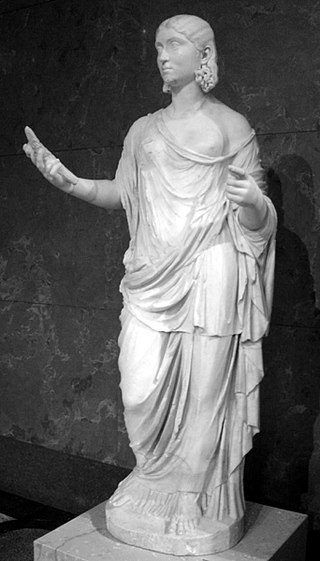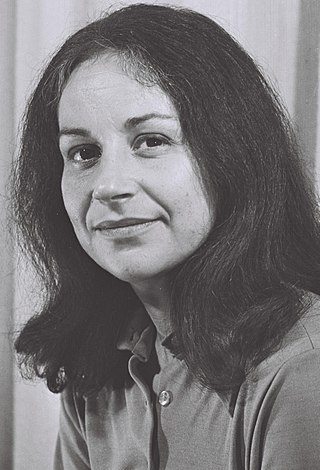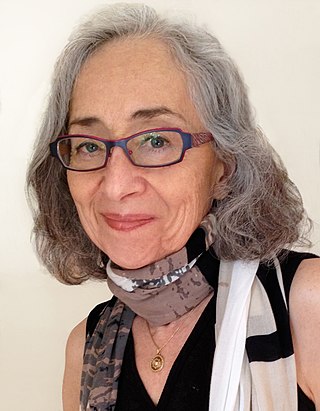Related Research Articles

In Judaism, the concept of the Jews as chosen people is the belief that the Jews as a subset, via partial descent from the ancient Israelites, are also chosen people, i.e. selected to be in a covenant with God. Israelites being properly the chosen people of God is found directly in the Book of Deuteronomy 7:6 as the verb baḥar (בָּחַר), and is alluded to elsewhere in the Hebrew Bible using other terms such as "holy people" as goy or gentile, Book of Exodus 19:6. Much is written about these topics in rabbinic literature. The three largest Jewish denominations—Orthodox Judaism, Conservative Judaism and Reform Judaism—maintain the belief that the Jews have been chosen by God for a purpose. Sometimes this choice is seen by believers as charging the Jewish people with a specific mission—to be a light unto the nations, and to exemplify the covenant with God as described in the Torah.
Feminist theology is a movement found in several religions, including Buddhism, Hinduism, Sikhism, Neopaganism, Baháʼí Faith, Judaism, Islam, Christianity and New Thought, to reconsider the traditions, practices, scriptures, and theologies of those religions from a feminist perspective. Some of the goals of feminist theology include increasing the role of women among clergy and religious authorities, reinterpreting patriarchal (male-dominated) imagery and language about God, determining women's place in relation to career and motherhood, studying images of women in the religions' sacred texts, and matriarchal religion.

Women in Judaism have affected the course of Judaism over millenia. Their role is reflected in the Hebrew Bible, the Oral Law, by custom, and by cultural factors. Although the Hebrew Bible and rabbinic literature present various female role models, religious law treats women in specific ways. According to a 2017 study by the Pew Research Center, women account for 52% of the worldwide Jewish population.

Thealogy views divine matters through feminine perspectives including but not limited to feminism. Valerie Saiving, Isaac Bonewits (1976) and Naomi Goldenberg (1979) introduced the concept as a neologism. Its use then widened to mean all feminine ideas of the sacred, which Charlotte Caron usefully explained in 1993: "reflection on the divine in feminine or feminist terms". By 1996, when Melissa Raphael published Thealogy and Embodiment, the term was well established.

Starhawk is an American feminist and author. She is known as a theorist of feminist neopaganism and ecofeminism. In 2013, she was listed in Watkins' Mind Body Spirit magazine as one of the 100 Most Spiritually Influential Living People.
Carol Patrice Christ was a feminist historian, thealogian, author, and foremother of the Goddess movement. She obtained her PhD from Yale University and served as a professor at universities such as Columbia University and Harvard Divinity School. Her best-known publication is "Why Women Need The Goddess". It was initially a keynote presentation at the "Great Goddess Re-emerging" conference" at the University of Santa Cruz in 1978. This essay helped to launch the Goddess movement in the U.S. and other countries. It discusses the importance of religious symbols in general, and the effects of male symbolism of God on women in particular. Christ called herself a "thealogian" and as such, made important contributions to the discipline of theology, significantly helping to create a space for it to be far more inclusive of women than has historically been the case. The term "thealogy" is derived from Ancient Greek θεά + -logy .
New Jewish Agenda (NJA) was a multi-issue membership organization active in the United States between 1980 and 1992 and made up of about 50 local chapters. NJA's slogan was "a Jewish voice among progressives and a progressive voice among Jews." New Jewish Agenda demonstrated commitment to participatory (grassroots) democracy and civil rights for all people, especially those marginalized within the mainstream Jewish community. NJA was most controversial for its stances on the rights of Palestinians and Lesbian and Gay Jews.
Jewish feminism is a movement that seeks to make the religious, legal, and social status of Jewish women equal to that of Jewish men in Judaism. Feminist movements, with varying approaches and successes, have opened up within all major branches of the Jewish religion.
Reclaiming is a tradition in neopagan witchcraft, aiming to combine the Goddess movement with feminism and political activism. Reclaiming was founded in 1979, in the context of the Reclaiming Collective (1978–1997), by two Neopagan women of Jewish descent, Starhawk and Diane Baker, in order to explore and develop feminist Neopagan emancipatory rituals.

Women of the Wall is a multi-denominational Jewish feminist organization based in Israel whose goal is to secure the rights of women to pray at the Western Wall, also called the Kotel, in a fashion that includes singing, reading aloud from the Torah and wearing religious garments. Pew Research Center has identified Israel as one of the countries that place "high" restrictions on religion, and there have been limits placed on non-Orthodox streams of Judaism. One of those restrictions is that the Rabbi of the Western Wall has enforced gender segregation and limitations on religious garb worn by women. When the "Women of the Wall" hold monthly prayer services for women on Rosh Hodesh, they observe gender segregation so that Orthodox members may fully participate. But their use of religious garb, singing and reading from a Torah have upset many members of the Orthodox Jewish community, sparking protests and arrests. In May 2013 a judge ruled that a 2003 Israeli Supreme Court ruling prohibiting women from carrying a Torah or wearing prayer shawls had been misinterpreted and that Women of the Wall prayer gatherings at the wall should not be deemed illegal.
Judith Plaskow is an American theologian, author, and activist known for being the first Jewish feminist theologian. After earning her doctorate at Yale University, she taught at Manhattan College for thirty-two years before becoming a professor emerita. She was one of the creators of the Journal for Feminist Studies in Religion and was its editor for the first ten years. She also helped to create B'not Esh, a Jewish feminist group that heavily inspired her writing, and a feminist section of the American Academy of Religion, an organization of which she was president in 1998.

Marcia Judith Freedman was an American-Israeli activist on behalf of peace, women's rights, and gay rights. In 1969, she immigrated to Israel where she helped establish and lead the feminist movement in the 1970s. She was a member of the Knesset from 1974 to 1977.
Orthodox Jewish feminism is a movement in Orthodox Judaism which seeks to further the cause of a more egalitarian approach to Jewish practice within the bounds of Jewish Law. The major organizations of this movement is the Jewish Orthodox Feminist Alliance (JOFA) in North America, and Women of the Wall (WOW) and its affiliates in Israel and internationally, known as The International Committee for Women of the Wall (ICWOW). In Israel, the leading Orthodox feminist organization is Kolech, founded by Dr. Chana Kehat. In Australia, there is one Orthodox partnership minyan, Shira Hadasha, in Melbourne.
An independent minyan is a lay-led Jewish worship and study community that has developed independently of established denominational and synagogue structures within the organized Jewish community. Some began in the late 1990s and most since the year 2000, though some are several decades older. These new groups often combine a commitment to halakha/Jewish law with egalitarianism, and strive to create worship services where traditional prayer can become "spiritual experiences".
The feminist movement has affected change in Western society, including women's suffrage; greater access to education; more equitable pay with men; the right to initiate divorce proceedings; the right of women to make individual decisions regarding pregnancy ; and the right to own property.
Feminist Jewish ethics is an area of study in Jewish ethics and feminist philosophy.
The following is a timeline of the history of feminism.

Marcia Falk is a poet, liturgist, painter, and translator who has written several books of poetry and prayer.
Martha A. Ackelsberg is an American political scientist and women's studies scholar. Her work focuses on the nature of power and its relationship with communities. Cases used in her research include feminist activism in the United States and the Mujeres Libres, an anti-fascist women's organization during the Spanish Revolution of 1936.
Siddur Nashim: A Sabbath Prayer Book for Women is a feminist siddur written in 1976 by Naomi Janowitz and Margaret Wenig of the Brown University Women's Minyan. It is the first siddur to use female imagery and pronouns to refer to God.
References
- ↑ "B'not Esh Founding Letter". Jewish Women's Archive.
- 1 2 3 Ackelsberg, M. A. (1986). Spirituality, Community, and Politics: B'not Esh and the Feminist Reconstruction of Judaism. Journal of Feminist Studies in Religion, 2(2), 109-120.
- ↑ Plaskow, J. (1995). Spirituality and politics: Lessons from B’not Esh. Tikkun, 10(3), 31-32.
- ↑ "Judith Plaskow". Jewish Women's Archive.